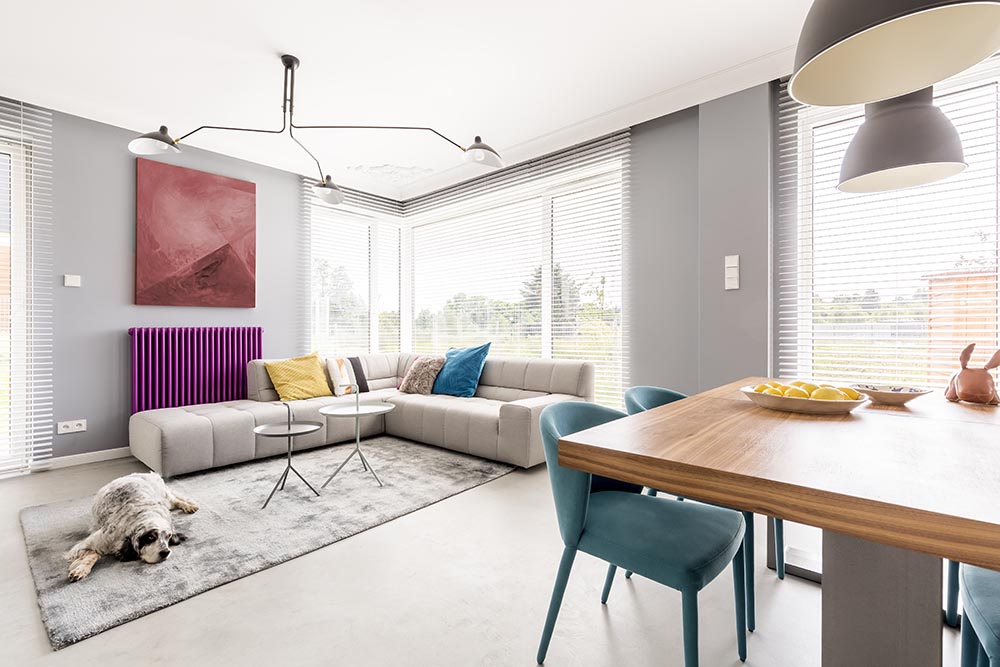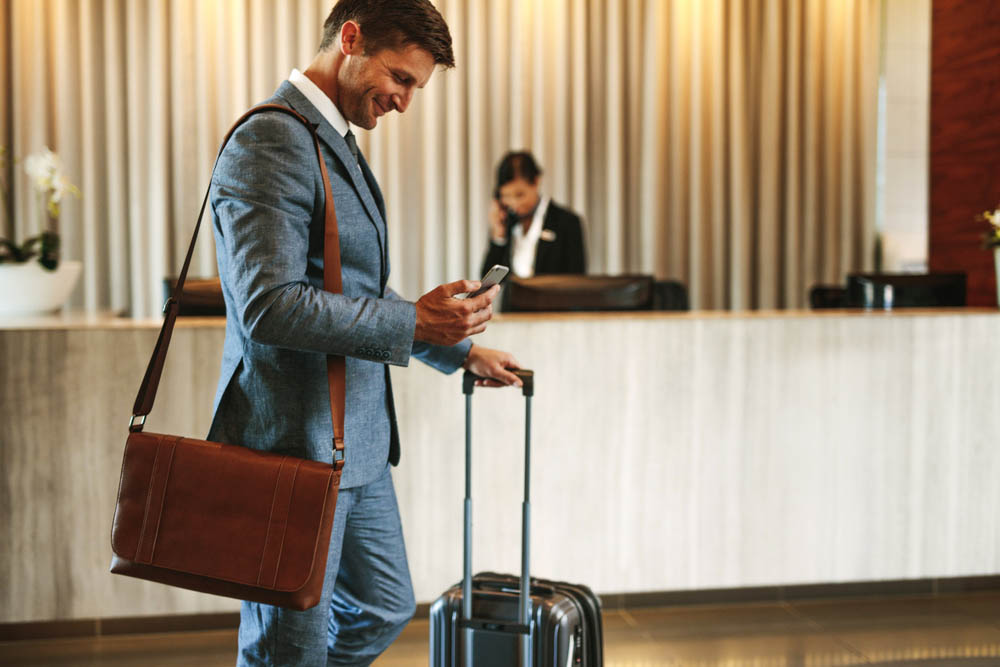Many business travelers are on the road often traveling for business for several days or even weeks or months at a time. Often, they stay in hotels. After a while, however, hotel rooms can feel a bit anonymous. Many long for the comfort of their homes while on the road. And that’s where it makes perfect sense to consider shared business travel accommodation, especially if the planned stay lasts several days.
What is a shared accommodation?
A shared accommodation in the hospitality industry refers to a concept coined by Airbnb where property owners were given the possibility to rent a room in their house to business travelers, leisure travelers or those visiting the area on personal business. This concept launched in 2008 as a way of providing short-term, affordable lodging by connecting people through a platform. Those with extra space could rent a room and later an entire house could be rented. This way there was not only a cultural exchange and the possibility to meet new and interesting people in your house as well as create a sense of community, but it also serves for cost-sharing, allowing you to lower your own personal expenses relating to the house.
Shared accommodation or hotel: What’s the difference?
Hotels are lodging establishments that have a reception desk staffed 24 hours a day and often provide meals for their guests. Guests can stay in single rooms, double rooms or suites, and the room itself has its own bathroom. Hotels often also have a restaurant and bar area, as well as fitness or sauna/spa areas.
Shared accommodation is a rented vacation home or room. This can be in guesthouses, or in private homes. It offers a familiar, practical option for business travelers compared to anonymous hotel rooms that always look the same.

Advantages of shared accommodation for business travel
Home sharing accommodations which are booked via platforms such as Airbnb, are in many cases a lot cheaper for business trips, especially for longer trips as many places might have monthly rates.
Another big advantage is the cozy and individual environment of the rented apartments. In most cases, a kitchen is also available, so that business travelers can cook for themselves, should this be desired. Especially if you are on the road for a longer period of time, this is a huge benefit because eating out can get old quick.
Some booking platforms also offer partnerships with co-working spaces. For example, Airbnb partners with WeWork, and business travelers can easily reserve co-working spaces in major cities around the world. In addition, many of the apartments offered have workspaces for business travelers with good Wi-Fi connection for convenient home office work on the go.
Arrival and departure times at home sharing accommodations are often more flexible than hotels as you general deal directly with the owner or rental manager. And you won’t be disturbed by cleaning staff during the day if you have virtual meetings or emails to take care of at the accommodation.
Disadvantages of shared accommodation
Some travel policies specify which accommodations may be chosen on business trips. Often employers have negotiated corporate rates with certain hotel chains, and other accommodation via platforms such as Airbnb may not be possible.
Many hotels offer extra services, such as fitness and sauna rooms, free coffee and tea in the room, and restaurant services with a breakfast buffet, which are often not offered in home sharing accommodations.
Hotels in many cases offer a better and safer location. They often cater to the needs of business travelers and are located near business parks, expo and trade show sites, and right in city centers. Shared accommodations, which may be located in private housing units, may require a longer trip to each meeting. Also, more time must be invested to research the location of accommodations.
Hotels must meet certain standards to maintain their star rating. Therefore, you can be relatively sure of the quality you can expect. This is more difficult with home sharing accommodations that are booked through platforms or perhaps even privately. You often have to rely more on your gut feeling.

Advantages of hotels for business travel accommodation
When you book a room with a well-known hotel chain, perhaps pre-approved by the company, you know roughly what to expect. Your company may also have agreed corporate rates with the hotel, so on business travel and accommodations you choose may be particularly favorable.
Most hotels offer additional services. For example, as a business traveler, you may have access to a gym and sauna or a spa area. In the morning, you can help yourself to the breakfast buffet and start the day well-fed.
The location of hotels that cater to business travelers often can’t be beat. Many are located near expo and trade fair sites, convention centers and business parks, or right in the city center and near the airport.

FIND OUT MORE ABOUT
Disadvantages of hotels for business travelers
The biggest disadvantage with hotels for business travelers compared to shared accommodation is the price. Apartments booked through platforms like Airbnb are often a lot cheaper than hotels for business travelers. And that’s despite corporate rates.
Hotels can also often feel very anonymous, and rooms aren’t always necessarily geared toward business travelers who need a decent desk and good, ideally free, Wi-Fi connection.
Check-in and check-out times at hotels are often severely limited. Business travelers increasingly want flexibility in this area, and may prefer to opt for home sharing accommodation if high-speed internet is a must.
Airbnb for work vs business hotels
Younger generation business travelers in particular (Gen Z, Millennials) increasingly want more flexibility when traveling. They are looking for travel and accommodations that are flexible and unique, while at the same time catering to business travelers and offering a unique experience.

Airbnb offers all of this compared to hotels. An individual arrival and departure time can be arranged with the respective hosts. The accommodations are individual, often in private houses and apartment blocks, and tend to be more homey and personal. Business travelers can work freely here and have the option to cook should they want to.
Hotels, on the other hand, offer quality and security standards. And as a business traveler, you can be sure in advance that the hotel’s location is safe and meets the demands of your company’s travel policy. Often hotel chains are located in close proximity to congress and exhibition centers, as well as important business locations, city centers and airports.
Alternative to hotels for business travel accommodation
Airbnb has already made a clear statement with its “Airbnb for Work” campaign that people looking for alternatives to hotels for business trips are on the rise. More and more business travelers want a “home away from home” on their trips and no longer want to stay in standardized rooms in large hotel chains.
Many want to be able to work or relax comfortably in the rented accommodation in the evening, cook their own meals, and enjoy the individual style of a shared accommodation. This way, they experience their business travel destinations in a completely different way and even have a more local experience, which is also great for job satisfaction.
Vacation homes, private apartments and even individual rooms can be rented through various platforms. A good alternative for bleisure travelers, i.e. business travelers who combine business and leisure (Business & Leisure = Bleisure), and may even bring their partners or family with them.
The future of business travel accommodation and accommodations
The world of business travel has changed dramatically since the pandemic and with the digital transformation. Millennials and Gen Z advocates no longer want to stay in anonymous large hotels near trade shows. They want to experience something, want to explore the destinations of their business trips further and feel completely at home while on the road.
Digital nomads work from anywhere, and the same goes for accommodations for business travelers. They want accommodations that cater to their digital needs – USB outlets, good and fast Wi-Fi connectivity, a cozy workspace, and a kitchen so they can prepare healthy, balanced meals.
That’s why home sharing accommodations and platforms like Airbnb are currently trending because different traveler needs are causing people to look for alternatives to hotels for business travelers. But the hotel industry is not far behind. Many chains are currently working on making their offerings more digital and individual in order to keep up with this development.

Is Airbnb driving up local rents?
While Airbnb insists that there is no clear link between rental prices and home sharing, many politicians and researchers in Germany see things differently. According to a study by the German Economic Research Institute (DIW), apartments offered on the platform have a serious impact on rental prices in Berlin, for example.
Apartments that are rented out via the platform are no longer available to the housing market elsewhere. This in turn leads to an increase in rental prices. According to the study, a 100-square-meter apartment in Berlin becomes €156 more expensive with each new listing.
What is a shared accommodation rate?
Shared accommodation rates tend to vary, but generally speaking they will be cheaper than renting an entire apartment for yourself or than staying at a hotel room.
How to choose the business travel accommodation that’s right for you
Travel management platforms like GetGoing can help you choose the right accommodations for your business trips. Through the system, you can access thousands of different listings while ensuring that your choices are compliant with your company’s travel policies.

